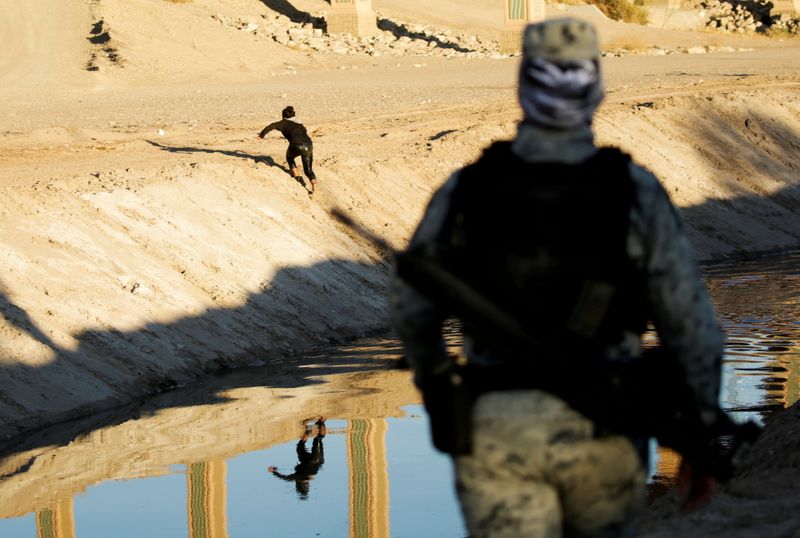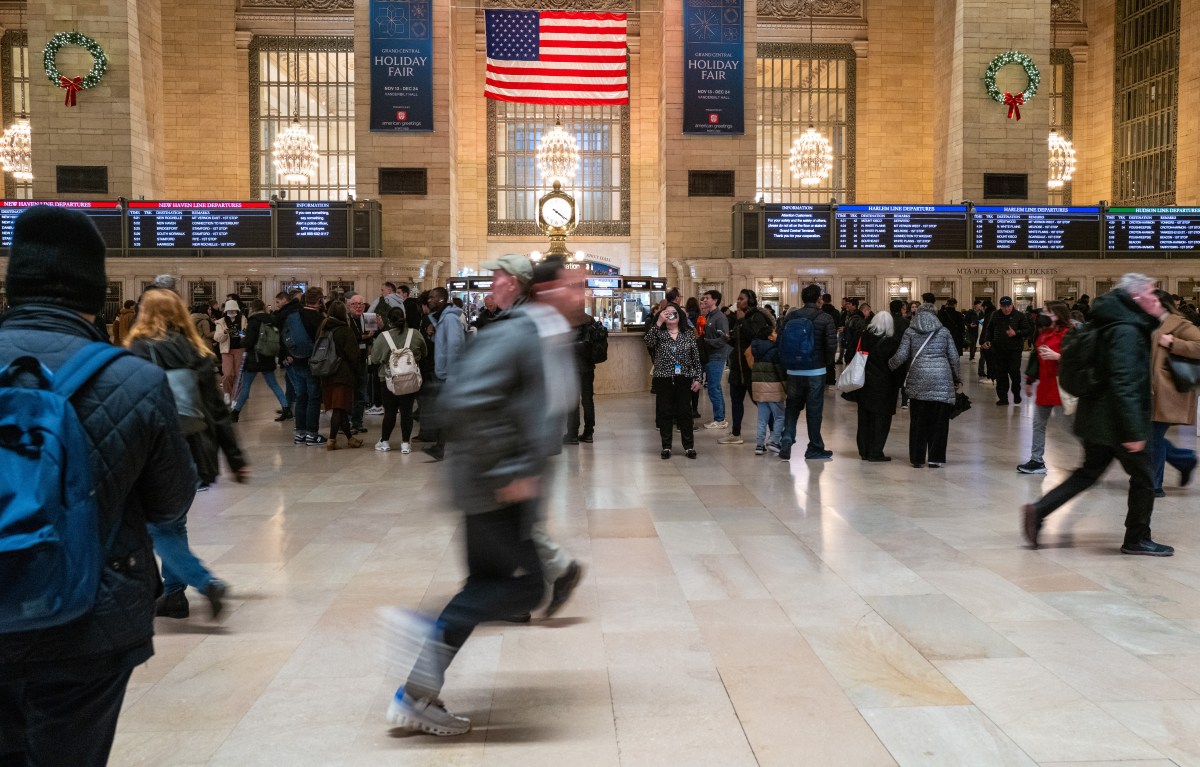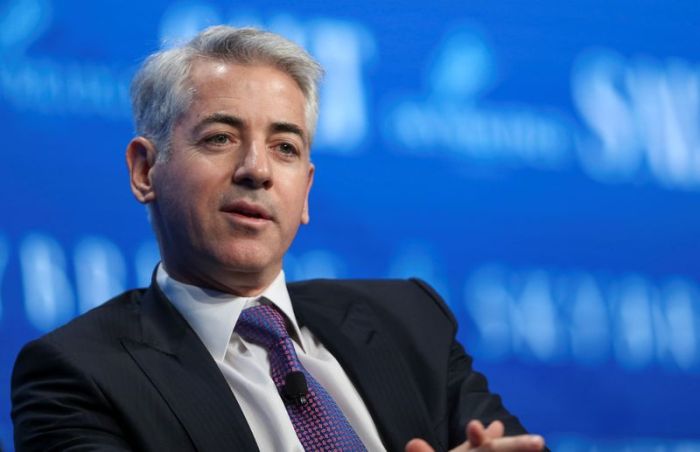APIZACO, Mexico (Reuters) – Mexico has stepped up immigration raids — hauling hundreds of people off trains in recent weeks — to stem an increase in Central American migrants heading for the United States since President Joe Biden took office, according to advocates and data from immigration authorities.
The crackdown by immigration agents backed by the military and police marks an escalation of Mexico’s efforts to control migration across its territory.
While Mexico has welcomed Biden’s pledge to tackle the root causes of migration from Central America, it is concerned that the new administration’s efforts to make it easier for people to claim asylum in the United States is encouraging migration and putting a burden on Mexico.
Some 1,200 migrants from Central America – including more than 300 children – were swept up in raids between Jan. 25 and Feb. 16 along train routes in six southern and central Mexican states, as well as in the capital, Mexico’s immigration agency said in a statement.
More than 800 migrants were also detained while traveling northward in buses or tractor trailers in recent weeks, according to figures from immigration authorities tallied by Reuters.
Mexico’s National Migration Institute said the decision to launch the train raids was not at the behest of the United States and it had not made such detentions in recent years because fewer migrants had used trains previously to travel northwards.
It did not provide comparative data for the total number of migrants swept up in raids in previous years.
But Tonatiuh Guillen, the head of Mexico’s immigration agency until 2019, told Reuters the frequency and scale of the current detentions were unprecedented. Guillen said that previously raids had been occasional but now they were common practice.
The White House has said the administration has not discussed with Mexico how it deploys security forces on its own soil. The administration has talked with Mexico about management of its southern border with Central America, a U.S. official said.
“It’s not a question of lists of demands or asking people to do more,” the official said. “It’s really much more of a question of sitting down and figuring out ‘What can we do?’”
Biden took office in January pledging to undo many of the restrictive immigration policies of former President Donald Trump. He has begun allowing unaccompanied minors arriving at the border to enter the country to pursue asylum claims. They had previously been rapidly deported.
Biden also rolled back a Trump-era program that had forced mostly Central American asylum seekers to wait in Mexico rather than in the United States while their claims are processed.
Republicans say the moves by Biden, a Democrat, have encouraged illegal immigration.
TRAIN HALTED
One evening in late January, a northbound freight train unexpectedly screeched to a halt in the central Mexican town of Apizaco.
Dozens of police, security forces and immigration officers swarmed the railroad tracks, according to witnesses. Buses to transport captured migrants were parked nearby.
Frightened, Honduran migrant Alejandro – who asked not to use his last name for his safety – said he jumped off the top of the train and scurried to take cover in the tall grass. He injured his leg and arm.
“I hid there nearly until morning because I heard so much screaming,” said Alejandro, 28, who swore to avoid using trains henceforth on his journey northward.
More than 100 migrants were captured in the operation, said Elias Espinoza, director of the Sagrada Familia migrant shelter near where the raid occurred.
It was the largest raid he had seen in eight years at the facility. It was followed about a week later by a second operation there by immigration authorities backed by special forces, Espinoza said.
Migrants run the risk of detention and deportation if they do not have the proper documentation to be in Mexico, even if they plan to seek asylum at the U.S. border.
“Mexico is playing the role of stopping immigration to the United States,” said Sergio Martin, head of operations in Mexico for humanitarian organization Doctors Without Borders.
Human rights groups have raised concerns about increased enforcement activities, saying Mexican and Central American security forces often infringe migrants’ right to seek asylum.
Despite the Mexico raids, U.S. border agents conducted 100,441 apprehensions or expulsions of migrants at the Mexican border in February, the highest monthly total since a border crisis of 2019. The rise was driven by migrants from Central America.
Asked about the raids and whether the U.S. administration supports Mexico stemming migration flows, a State Department spokeswoman said the United States works to promote “safe, orderly, fair, and humane migration globally.”
Mexico’s foreign ministry did not immediately respond to questions. It has said orderly migration is in the national interest and it has told the new U.S. administration that it will maintain enforcement efforts aimed to control illegal immigration.
Central American migrants are fleeing criminal violence, economic collapse and a growing hunger crisis, exacerbated by devastating storms.
Pandemic-related lockdowns and back-to-back hurricanes in November have devastated fragile Central American economies, particularly that of Honduras.
Fewer Central American migrants can now pay smugglers to spirit them across Mexico and into the United States, a trip that costs thousands of dollars per person.
Instead, more migrants are making their way on their own, smugglers say, exposing them to both powerful drug cartels and the immigration raids.
Some migrants are opting to trek hundreds of miles through harsh terrain, rather than risk being swept up in raids.
Honduran migrant Pablo Sordo, in the Mexican state of Veracruz, said he had already been stopped once by Mexican authorities at a checkpoint and that he did not intend to board the train out of fear that he would be stopped again.
“You have to travel undetected: otherwise you’ll either run into immigration or you’ll run into thugs, and if you don’t have money to pay they’ll leave you barefoot,” Sordo said.
(Reporting by Lizbeth Diaz in Apizaco, Laura Gottesdiener in Monterrey and Ted Hesson in Washington, additional reporting by Tamara Corro in Coatzacoalcos; Editing by Alistair Bell)




















